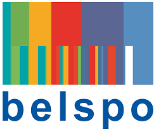BMC Public Health published a study by Devleesschauwer and colleagues with estimates on the direct COVID-19 burden in Belgium during 2020 and 2021, and a comparison to the burden from other causes.
The direct impact of COVID-19 on individual health occurs via three main pathways, (1) the acute infectious phase with a morbidity component (e.g., feeling sick, being hospitalized, etc.), (2) the acute infectious phase with a mortality component (i.e., COVID-19 related fatalities), and (3) a chronic phase with long-lasting morbidity beyond the period of the acute symptomatic infection.
Estimates of person-years for (a) acute non-fatal disease states were calculated from a compartmental model, using Belgian seroprevalence, social contact, hospital, and intensive care admission data, (b) deaths were sourced from the national COVID-19 mortality surveillance, and (c) chronic post-acute disease states were derived from a Belgian cohort study.
The study finds that COVID-19 had an important effect on the population health in Belgium during its first two calendar years. The total COVID-19 disease burden amounted to 253,577 Disability-Adjusted Life Years (DALY) [252,541 − 254,739] in 2020, and a total of 139,281 DALYs [136,704 − 142,306] in 2021. More than 80% of the observed disease burden occurred in the population of 60 years of age and older. Of the total observed disease burden, more than 90% could be attributed to premature mortality. Compared to the disease burden estimates for 2019, the disease burden of COVID-19 in 2020 was 40,254 DALYs higher than ischemic heart disease, the disease with the largest contribution to the overall disease burden, and 183,277 DALYs more than lower respiratory infections.
The results further highlight that the post-acute consequences of COVID-19 might strongly contribute to COVID-19 morbidity and can have a considerable impact on population health with, consequently, a higher burden on the health care system and health-related quality of life.
The full article is available via: https://www.ncbi.nlm.nih.gov/pmc/articles/PMC10476343/

